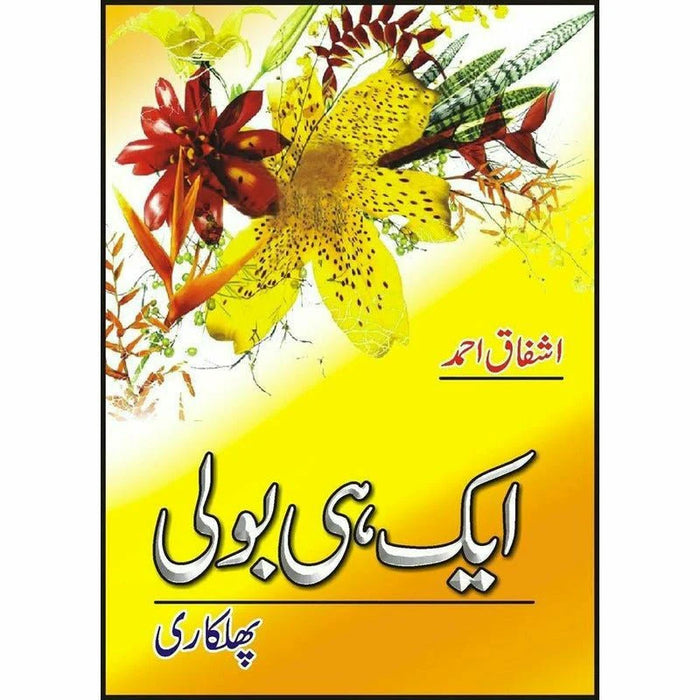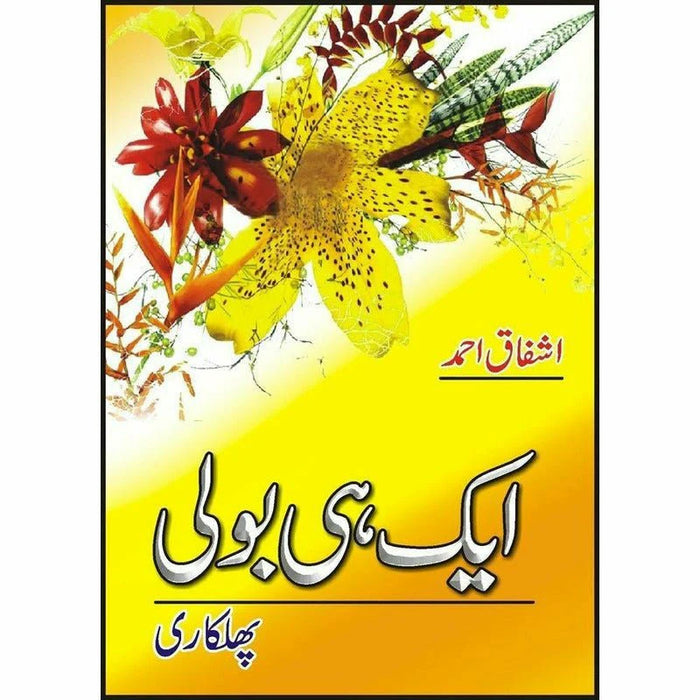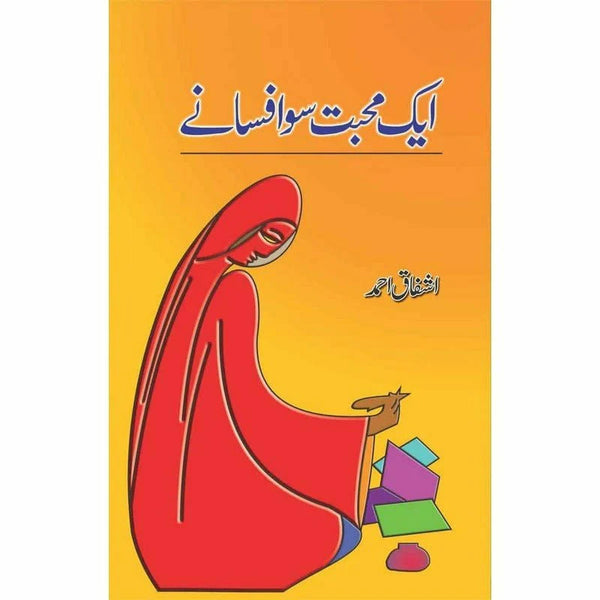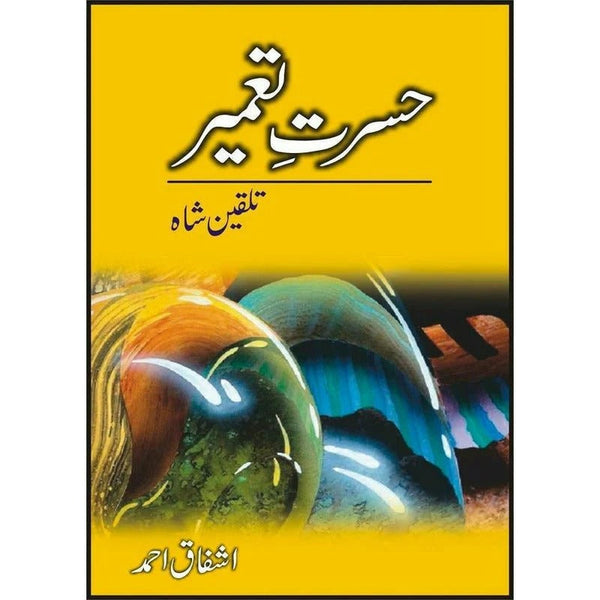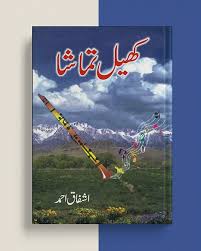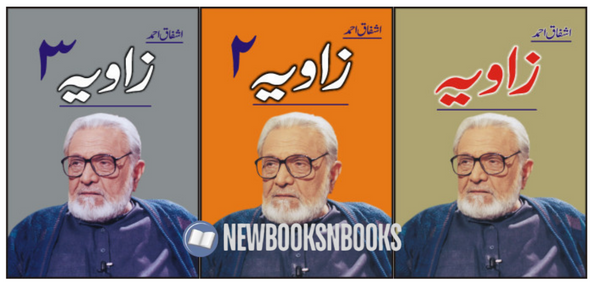Aik Hi Bolee (Phulkari) - Ashfaq Ahmad - اشفاق احمد
- Publisher: Sang-E-Meel Publications
- Availability: In Stock
- SKU: 33878
- ISBN: 9693513681
- Number of Pages: 123
Rs.450.00
Rs.500.00
Tags: Aik Hi Bolee , Ashfaq Ahmad , Ashfaq Ahmad's legacy , Ashfaq Ahmad's writing , bittersweet love , character development , complexity of life , cultural embroidery , cultural themes , emotional growth , emotional struggles , existential reflection , fate and destiny , human connections , human emotions , human nature , human relationships , introspective fiction , life patterns , life struggles , life’s patterns , literary masterpieces , literary nostalgia. , literature of pain , literature of self-discovery , loss of opportunities , love's pain , love’s complexities , meaning of existence , memory and reflection , narrative complexity , narrative structure , Pakistani short stories , personal desires , philosophical storytelling , Phulkari , profound storytelling , psychological depth , Punjabi culture , Sang-E-Meel Publications , short story , social norms , societal expectations , societal pressure , socio-cultural context , traditional culture
Aik Hi Bolee (meaning "The Same Tune") is a short story written by renowned Pakistani writer Ashfaq Ahmad. The story is part of his collection Phulkari, which highlights the intricacies of human emotions, relationships, and the socio-cultural context of Pakistan. Ashfaq Ahmad, known for his profound understanding of human nature, uses this story to explore the complex dynamics between individuals and the concept of fate. The story beautifully intertwines themes of love, pain, and the search for meaning in life.
Key Themes and Features:
-
Human Emotions:
The story delves into the deep emotional struggles that the characters face, focusing on their desires, regrets, and the emotional baggage that comes with life experiences. Ashfaq Ahmad captures the complexity of human feelings with great sensitivity. -
Fate and Destiny:
One of the core themes of the story is the role of fate and destiny in shaping the lives of the characters. The concept of "Aik Hi Bolee" (The Same Tune) signifies how people seem to be stuck in recurring patterns, where they are unable to escape the cycle of their circumstances, no matter how hard they try. -
The Role of Society:
Like many of Ashfaq Ahmad's works, this story also touches on the influence of society on individuals. The characters are shown to be struggling with societal expectations, and their lives are intertwined with social norms that shape their decisions and actions. -
Love and Loss:
As in many of Ashfaq Ahmad's stories, the theme of love—both its beauty and its pain—is central. The characters’ love stories are tinged with sorrow and loss, reflecting the bittersweet nature of relationships and human connections. -
Personal Growth and Reflection:
The story also touches upon personal growth and self-reflection. The characters are forced to confront their inner selves, leading to moments of realization and introspection. This element is essential to the development of the story and its characters. -
Symbolism of "Phulkari":
The title "Phulkari," which refers to a traditional form of embroidery in Punjabi culture, symbolizes the intricate and sometimes tangled nature of life. Just as a phulkari is made up of many complex stitches, human life is a tapestry of various experiences, emotions, and decisions. -
Nostalgia and Memory:
There is an underlying theme of nostalgia, where characters reflect on their pasts, relationships, and lost opportunities. The story evokes feelings of longing and regret for what has been lost and what could have been. -
Existential Themes:
Ashfaq Ahmad uses this story to explore deeper existential themes. The characters seem to grapple with questions of existence, purpose, and meaning, struggling to understand their roles in the grand scheme of things. -
Social Expectations and Individual Choices:
The tension between personal desires and societal expectations is a recurring theme. The story sheds light on the struggles individuals face when trying to align their personal desires with the pressures of the society around them. -
Realism and Relatability:
Ashfaq Ahmad's writing is grounded in realism, portraying characters and situations that readers can relate to. The situations in Aik Hi Bolee are realistic and resonate with anyone who has faced personal or societal conflicts.
Conclusion:
Aik Hi Bolee (Phulkari) is a beautifully written story that encapsulates the complexity of human emotions and relationships. Ashfaq Ahmad uses the theme of recurring life patterns, societal pressure, and existential reflection to create a poignant narrative. Through the symbolic use of Phulkari, he brings to light the intricate and multifaceted nature of life. The story is a reflection on love, loss, personal growth, and the search for meaning, making it a timeless piece of Urdu literature.

